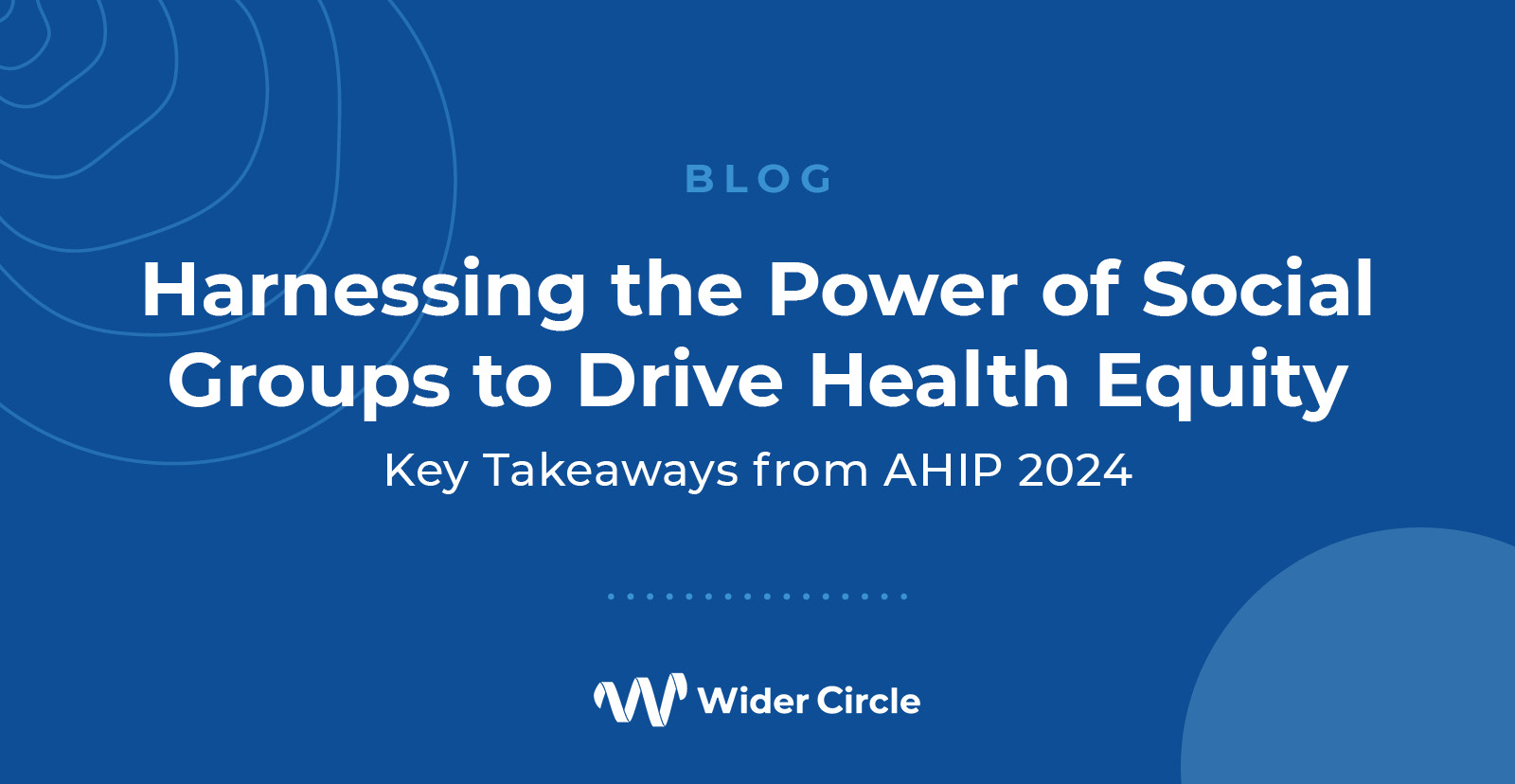
Recently, our editorial team had a chance to sit down with Denise Doyle, who leads virtual health talks for Wider Circle members across the country. Prescription drug coverage is a very popular topic with her senior groups — after all, it is confusing and no one likes to pay more than they have to. Here, she shares her top tips with us:
Wider Circle: Hi, Denise! So it’s no secret that prescription drugs can be very expensive, and not all health plans are created equal. Can you help us understand what kinds of insurance plans cover prescription drugs?
Denise: Of course! Medicare provides health coverage for 97% of older Americans, so let’s stick to that universe for this conversation. Prescription drugs are covered by Medicare Part D. Part D plans are sold by private insurance companies either as a standalone plan known as a Medicare Prescription Drug Plan (or PDPs) or as part of a Medicare Advantage Plan (or MA-PDs), which groups Parts A, B and D coverage into a single plan. Once their deductible is met, seniors pay co-payments ranging from 1-25% for their prescriptions, depending on your plan and the medication.
WC: So those co-pays can really add up if you are taking more than one or two prescriptions. What are some ways seniors can lower their out-of-pocket costs?
Denise: Through the research I have gathered on trusted sites like CMS.gov and Medicare.gov, I have 5 top tips if you need help paying for prescriptions:
Senior Savings Success Stories
“I called the drug manufacturer and am able to have my medication covered by a grant. I am saving over $700 month!”
— Wider Circle Member, Fresno, CA
“My doctor is great about giving me samples if she has any. It saves me hundreds every year.”
— Wider Circle Member, Sacramento, CA
“I was hesitant to switch to generic, but tried it and it worked just the same. I save a lot of money every month!”
— Wider Circle Member, Bakersfield, CA
- Don’t be afraid of generic. Most individuals are able to lower their out-of-pocket costs by between 25%-75% by using a generic instead of a brand name drug. Talk to your doctor to see if this is an option for you. You shouldn’t be concerned about lower quality if you go generic. Generic drugs are the same as their brand name equivalents, and are usually less expensive.
- Look into pharmaceutical assistance programs – it’s easy! Some pharmaceutical companies offer programs to help pay for medications for people enrolled in Medicare Part D. Find out whether there’s a Pharmaceutical Assistance Program that can lower prescription costs for the drugs you take.
- Ask your health plan for a 90-day supply. Many insurance companies allow you to get 90 days of a medicine and only pay for 60 days if you use a mail order pharmacy. It’s also very convenient to do it this way; aside from not having to drive to a retail pharmacy, many mail order pharmacies will call to remind you when it is time to refill a prescription or when a new prescription is required.
- See if you qualify for Medicare Extra Help. Extra Help is a program that provides additional financial assistance to seniors with limited income and assets to help them pay for prescription drugs. Contact your health plan to see if you qualify.
- Consider coupons for extra savings. Call the maker of the medication and ask if they have grants, discounts, or coupons.
WC: Unfortunately we live in a time where we have to worry about money scams and identity theft. What should seniors be looking out for?
Denise: I always like to tell my senior friends, if it sounds too good to be true, it usually is! You might get calls from people that ask if you are diabetic, have COPD, heart problems or asthma. They make you think that they are calling from your insurance company, but they are not. Be careful: your insurance company will not call and offer you discounted or hard-to-find pills. Nor will they send you a piece of mail offering these things.
If you do not recognize a phone number, do not answer the call. Let it go to voicemail. If it is important, they will leave you a message.
WC: Thank you for your time, Denise. These are great tips! Any other advice you’d like to share when it comes to prescriptions?
Denise: No matter what, do not skip taking medication at the time you are supposed to have it, cut it in half, take a smaller dose to stretch out the prescription, or stop taking it before you finish all the medication unless your doctor tells you to stop. Hopefully some of the tips I’ve shared today will help you lower your drug costs, but if you still need help, call your insurance company, share your medication information with them, and ask them what other options are available for extra help. It is so important to stay on track of your health and take your medications as prescribed. We want our seniors healthy, happy and thriving!
The information included in this blog is for educational purposes only and is not intended to be a substitute for professional medical advice.



